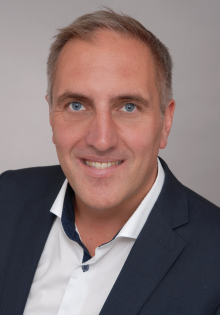When it comes to early childhood education, the state government prioritises the promotion of language skills among the youngest children in North Rhine-Westphalia. It is therefore driving forward the further development of language education integrated into everyday life. This approach, which has been established in daycare centres throughout the state, aims to embed language education naturally but purposefully into the day-to-day life of the daycare centre - whether it is during play, discovery or even when getting dressed and eating lunch together. A basic paper on everyday integrated language education and observation from 2014 serves as a binding guideline for providers and educational staff and is being comprehensively revised as part of the WAS-NRW project ("Further development of everyday integrated language education in NRW"). Against this backdrop, Family Minister Josefine Paul has now opened the constituent meeting of the accompanying advisory board for the further development of the principles. The scientifically supported revision is intended to take account of the requirements in daycare centres. This is because children have increasingly diverse living environments and different needs. Digital media is also playing an ever greater role.
Family Minister Josefine Paul: "With our concept of everyday integrated language education, the educational work in our daycare centres has a strong foundation that we can be proud of in North Rhine-Westphalia. At the same time, we must continue to develop the concept in a systematic and future-orientated way. It is crucial for its success that we closely combine science and practice. With the WAS-NRW project, we are now embarking on precisely this path in order to create well-founded, innovative and practical foundations. This is a contribution to ensuring that all children in NRW have the best possible opportunities for a successful educational biography and can start school well-equipped at the end of their time at nursery."
One focus of the further development is on early language and literacy promotion, taking multilingualism into account. This means the playful and age-appropriate use of language, books, other media and first characters. Especially when reading aloud in dialogue, children are actively involved in storytelling and their language development is strengthened. The aim is to lay the foundations for later reading and writing skills. At the kick-off meeting, project managers Prof Dr Timm Albers (Paderborn University) and Prof Dr Nadine Madeira-Firmino (Bielefeld University of Applied Sciences) presented how the concept is to be further developed in a participatory manner. In addition to the advisory board, which is made up of representatives from the municipal umbrella organisations, the state youth welfare offices and experts from the daycare centres, a committee of academic experts is also supporting the process.
Prof Albers: "Language education in early childhood plays a decisive role in determining children's educational pathways. As a federal state, NRW is setting a good example here and focussing on evidence-based impulses instead of short-term measures."
Prof Dr Madeira Firmino: "It is very important to us to systematically transfer scientific findings on multilingualism, early literacy promotion and the importance of interaction in everyday life into educational practice."
Over the next few months, the revised content will be trialled in selected daycare centres. Among other things, dialogue-based reading will be introduced in everyday life and scientifically monitored.
This text was translated automatically.



